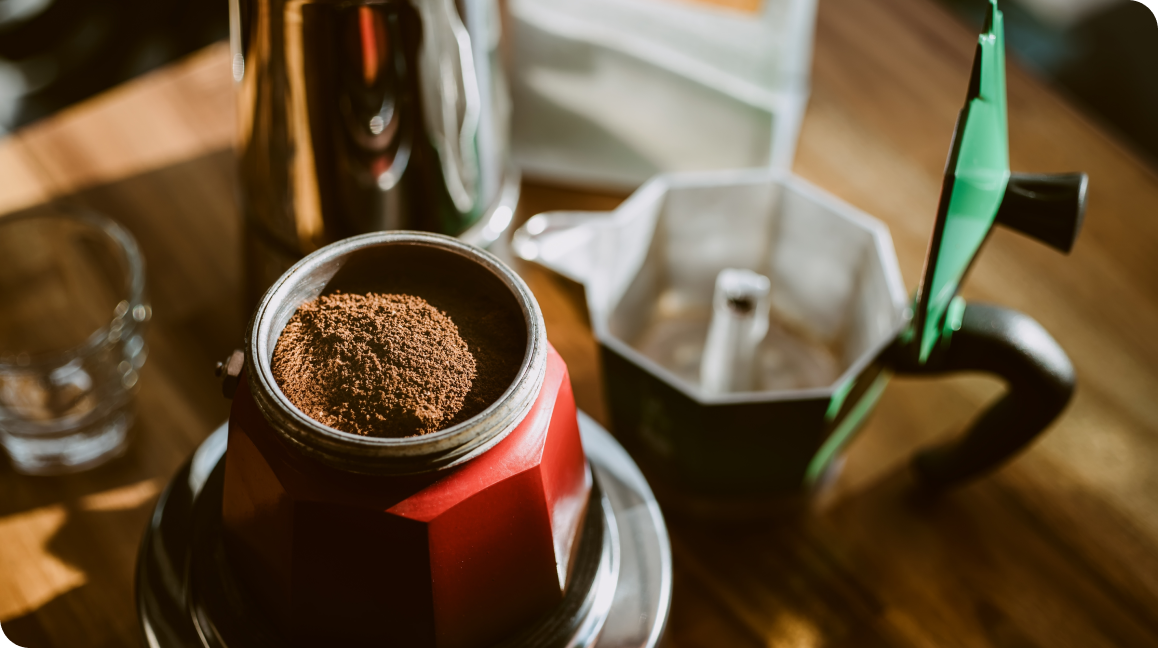When to drink coffee? As soon as you wake up, on an empty stomach, after meals. Let us clarify
A commonly asked question is when to drink coffee during the day. There is no single answer: various factors affect its action on the metabolism.

- Treating yourself to a cup of coffee is a good habit that accompanies you throughout the day.
- When to drink coffee? A joy upon awakening, this perhaps is not the best moment. The reason? Cortisol is to “blame”.
- To consume coffee on an empty stomach can contribute to increase the sensation of heartburn and gastric reflux.
- Drinking coffee after having lunch aids the digestion process as it stimulates salivation and the secretion of gastric juices.
- There is no strict correlation between coffee and insomnia. However, for those who suffer from a sleep disorder, it is advisable not to drink coffee after 5pm.
A coffee for every moment of the day
Coffee, as we know, is a pleasant daily ritual. For many people it means treating themselves to something: a pampering to start the day off right, a break from work, an excellent end to a meal.
On paper, any moment could be the right one to enjoy a good coffee, alone or with company.
Yes, on paper. But in reality? No more generalizations and clichés. Coffee consumption has an impact on our bodies. The effects of coffee, however, depend both on the health conditions of the individual and on the quantities ingested. In this article we try to understand when to drink coffee.

A good day starts with a good coffee
There are those who love to wake up tickled by the aroma of freshly brewed coffee and the sputtering of the Moka. The typical way in which Italians wake up, and it always puts them in a good mood.
However, as soon as we get up, our body starts producing cortisol. This is a hormone secreted by the adrenal gland that allows the correct functioning of various activities. For example, it regulates:
- blood sugar;
- the action of the immune system;
- blood pressure.
Upon awakening, cortisol levels begin to rise, peaking within an hour. From this point of view, drinking coffee just after waking up would interfere with the production of cortisol, "suggesting" to our body to produce less of it. And, according to one study¹, consuming coffee while cortisol is at its peak would lead to developing a long-term tolerance to caffeine.
To answer the question of when to drink coffee in the morning we then refer to some experts. Ideally, one should wait for cortisol levels to drop. That means to wait about a couple of hours. Does the alarm clock ring at 7:00? The first coffee should be consumed by 9:00. But let us be clear: there is no rule against drinking coffee as soon as you wake up. However, in this case, it would be better to accompany the first cup of coffee with food.

Drinking coffee on an empty stomach
Analyzing when to drink coffee, it should be taken into account that caffeine is quickly absorbed by the body.On average, it takes 30 minutes, and remains in the bloodstream for several hours. For this reason, on an empty stomach, the effects of coffee are felt faster.
Drinking coffee without having touched food first can increase the sensation of heartburn and gastric reflux.
The hydrochloric acid released by caffeine, which usually helps to process ingested food, ends up attacking the mucous membranes of the stomach in the absence of food, causing the above reactions. Caffeine also tends to relax the valve that makes food flow to the esophagus, the lower esophageal sphincter, causing stomach acidity.
When drinking coffee at lunch helps you digest
When to drink coffee? Treating yourself to an espresso at the end of a meal can enhance some of the benefits of coffee. In particular, drinking coffee after lunch helps the digestion process because it stimulates salivation and the secretion of gastric juices. Beware, however, to consume it after a rich meal. The assimilated fats interact negatively with caffeine. As a matter of fact, the metabolism is not able to assimilate sugars which, therefore, remain in the bloodstream. It is therefore better to wait for the end of digestion before enjoying a good coffee after binging. Coffee, as already mentioned, is rich in polyphenols that play a very important role. Several studies have shown that these antioxidants allow blood vessels to dilate and help to improve circulation. Not only that:
- they increase the levels of the hormone that regulates appetite;
- improve postprandial hyperglycemia;
- contribute to decreasing oxidative stress.

Is drinking coffee in the afternoon or in the evening a good idea? It depends
Understanding when to drink coffee is important to evaluate all the elements involved. For example, if you suffer from insomnia, it is suggested not to drink coffee after 5pm. The absorption of caffeine² tends to influence the circadian rhythm, that is our biological clock, delaying the onset of sleep by about 40 minutes. It seems, in fact, that caffeine blocks adenosine receptors, inhibiting the perception of drowsiness. It should be emphasized, however, that there is no strict correlation between coffee and insomnia. Much depends on:
- the overall health of the person;
- the quantity of caffeine consumed during the day;
- the characteristics of the blend of coffee used.
Contrary to what one might think, a cup of coffee can be recommended for the elderly who suffer from hypnic nocturnal cephalea - as it helps to reduce its attacks. In general, the effects of caffeine are very heterogeneous: getting to know how it affects your body is the first step to understanding what to do with it.
NOTES
1Modified-release hydrocortisone to provide circadian cortisol profiles.
2For more informations: La valutazione del rischio spiegata dall'EFSA: la caffeina




